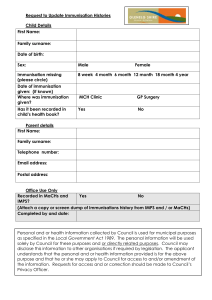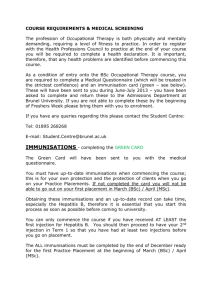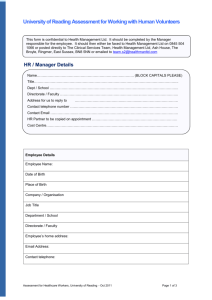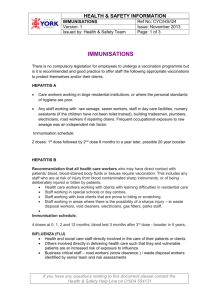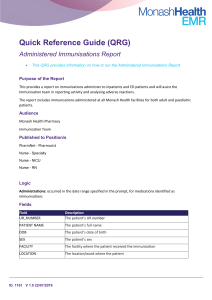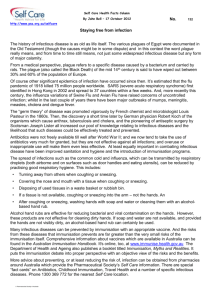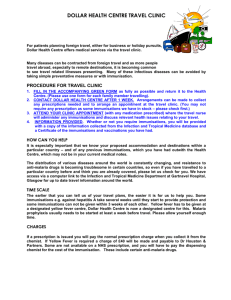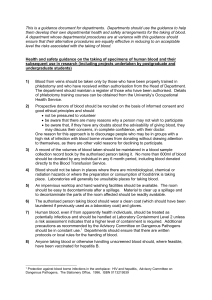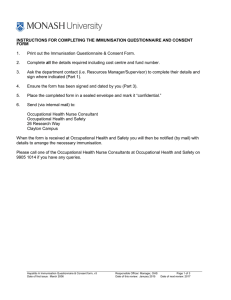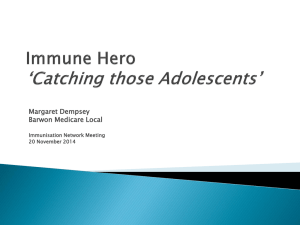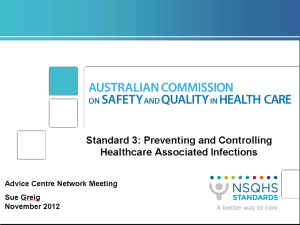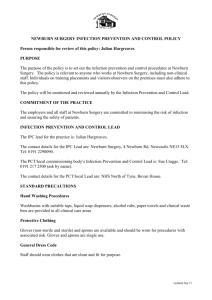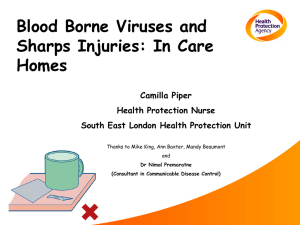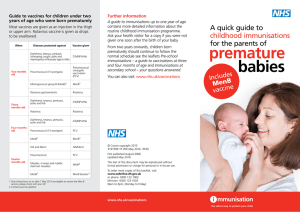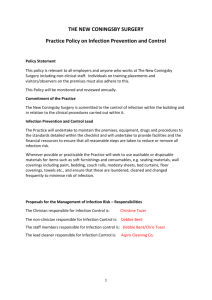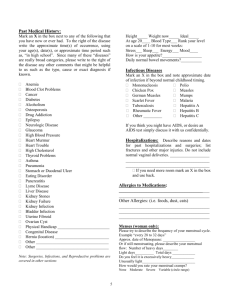Unscreened human blood may be infected with blood borne viruses
advertisement
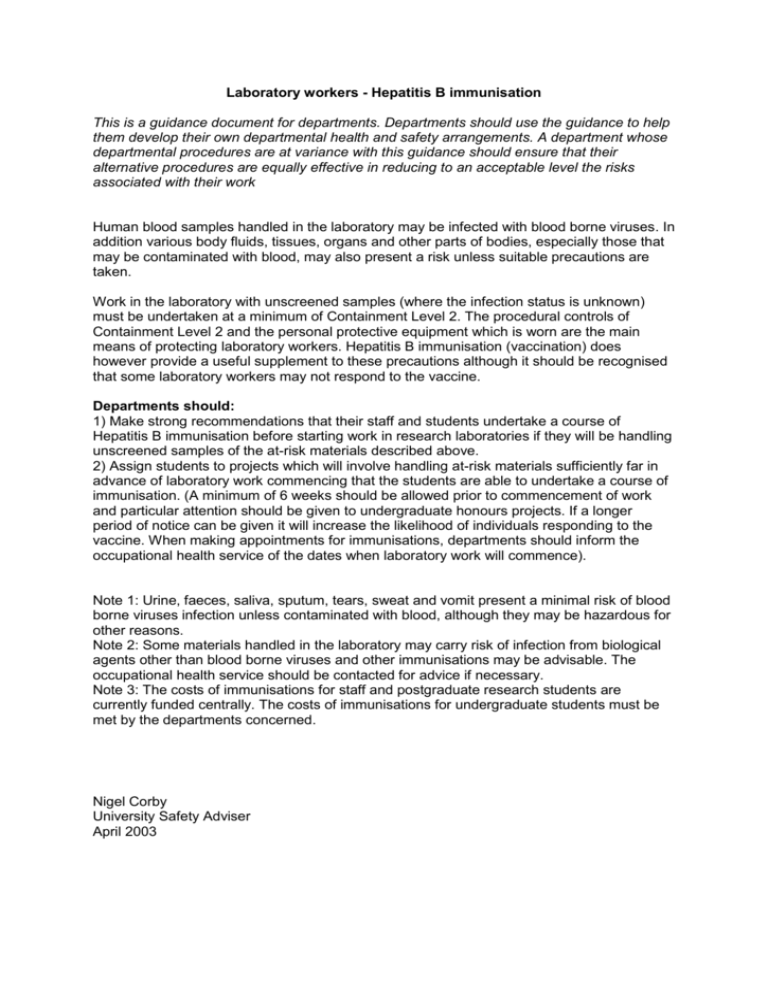
Laboratory workers - Hepatitis B immunisation This is a guidance document for departments. Departments should use the guidance to help them develop their own departmental health and safety arrangements. A department whose departmental procedures are at variance with this guidance should ensure that their alternative procedures are equally effective in reducing to an acceptable level the risks associated with their work Human blood samples handled in the laboratory may be infected with blood borne viruses. In addition various body fluids, tissues, organs and other parts of bodies, especially those that may be contaminated with blood, may also present a risk unless suitable precautions are taken. Work in the laboratory with unscreened samples (where the infection status is unknown) must be undertaken at a minimum of Containment Level 2. The procedural controls of Containment Level 2 and the personal protective equipment which is worn are the main means of protecting laboratory workers. Hepatitis B immunisation (vaccination) does however provide a useful supplement to these precautions although it should be recognised that some laboratory workers may not respond to the vaccine. Departments should: 1) Make strong recommendations that their staff and students undertake a course of Hepatitis B immunisation before starting work in research laboratories if they will be handling unscreened samples of the at-risk materials described above. 2) Assign students to projects which will involve handling at-risk materials sufficiently far in advance of laboratory work commencing that the students are able to undertake a course of immunisation. (A minimum of 6 weeks should be allowed prior to commencement of work and particular attention should be given to undergraduate honours projects. If a longer period of notice can be given it will increase the likelihood of individuals responding to the vaccine. When making appointments for immunisations, departments should inform the occupational health service of the dates when laboratory work will commence). Note 1: Urine, faeces, saliva, sputum, tears, sweat and vomit present a minimal risk of blood borne viruses infection unless contaminated with blood, although they may be hazardous for other reasons. Note 2: Some materials handled in the laboratory may carry risk of infection from biological agents other than blood borne viruses and other immunisations may be advisable. The occupational health service should be contacted for advice if necessary. Note 3: The costs of immunisations for staff and postgraduate research students are currently funded centrally. The costs of immunisations for undergraduate students must be met by the departments concerned. Nigel Corby University Safety Adviser April 2003
